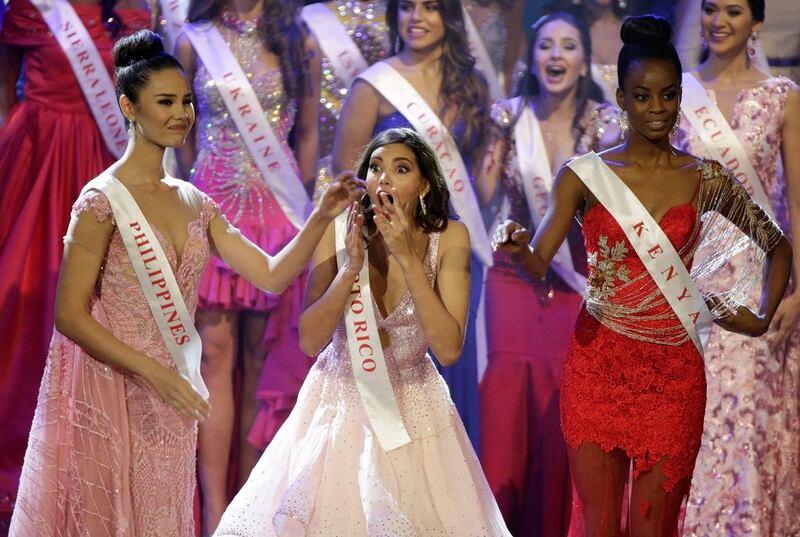I was standing in front of my mirror recently, patting my muffin top and mourning the addition of bags under my eyes and the loss of my figure.
“Do you think I look fat in this dress?” I asked my six-year-old daughter. She fixed me with a stern stare.
“Why do you keep saying things like that about yourself?” she demanded to know. She gently chided me: “You’re lovely and you look pretty in whatever you wear. Don’t you know you’re beautiful?”
Her belief in the inherent beauty of all girls and women filled me with joy. But I know that I'm going to have to work hard in the coming years to ensure she always feels this way about intrinsic beauty and her belief in it.
There's a growing obsession with beauty and appearance and the deep anxieties that come with this take root very early. According to the girls' attitudes survey by Girlguiding UK, 69 per cent of girls aged between seven and 21 feel they are not good enough.
Girls are holding themselves back from real life because they worry about how they look. A study by Dove beauty products firm found more than half of the girls surveyed would not spend time with family and friends or participate in activities outside the house if they were not happy with the way they looked.
This startling number rose to nine out of 10 girls in the UK who expressed low body esteem.
This is a worldwide epidemic that is taking a significant and dangerous toll on girls.
The study by Girlguiding UK also found that more than one third of girls between seven and 10 thought females were rated more on their appearance than their abilities and 36 per cent said they were made to feel their looks were their most important attribute.
___________________________
Read more from Shelina Janmohamed:
[ Instead of maligning women who refuse to 'settle', let's encourage men to step up ]
[ Am I a supermum? More importantly, do I want to be? ]
[ Muslims don't need to be singled out, emphasising our 'otherness' ]
___________________________
Children ask each other if they are pretty or ugly. Apps exist where users can rate each other’s attractiveness and can give children as young as 13 access to adult dating sites.
Women and girls have always been faced with a worldquick to judge them by their looks and put a value on their beauty but in recent times, this has escalated in an unexpected and harmful way among girls.
Body confidence is dropping year on year and mental health issues among girls are spiking.
Despite last year being a huge turning point in conversations about empowering women and girls, we are not addressing this major crisis in girls’ self-awareness and confidence.
We need to start talking openly and frankly to girls about beauty and about how to deal with the social challenges that are affecting them in toxic ways.
The first thing to recognise is that the brave new world of social media is sucking in our children, having huge effects on their self-perception and as a result, on their ability and aspiration to go out and be part of the world.
Common Sense Media, an organisation aimed at helping children use media and technology, found 35 per cent of teenage girls are worried about people tagging them in unattractive photos.
Some 27 per cent felt stressed about how they looked in posted photos and 22 per cent felt bad about themselves if their photos were ignored.
Teenage girls were twice as likely as boys to be unhappy with their appearance and more than two-thirds thought they needed to lose weight. And who knows what long-term effects this would have in adulthood.
While boys are affected, this is having a disproportionate effect on girls. We need to intervene early.
The study showed at the age of 10, girls who interacted on social media for an hour or more on a school day felt worse than girls who had lower levels of social media interaction and were more likely to experience social and emotional difficulties as they got older.
The immersive nature of social media and the fact it is so visual and geared around likes and popularity makes it incredibly powerful for children who haven't formed a sense of self and don't have strategies to deal with it.
Even as adults, we are susceptible. Dove found that in the UK, only one in five women feel good about the way they look.
We need to recognise girls are growing up in a world that is completely different to anything that we've experienced ourselves.
Our challenge is to ensure the self-belief and innocence of girls like my own daughter are preserved and that we equip them with resources and strategies to explore the world rather than hold themselves back.
Shelina Janmohamed is the author of Love in a Headscarf and Generation M: Young Muslims Changing the World





